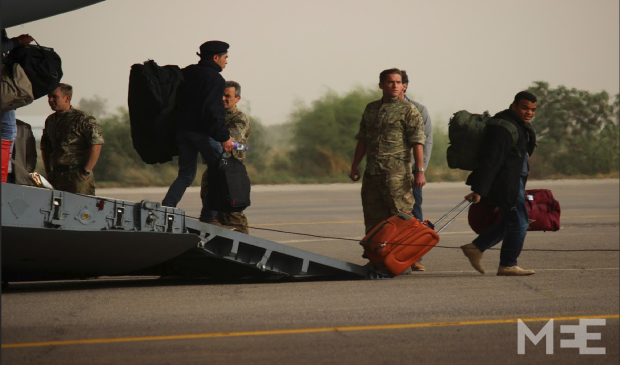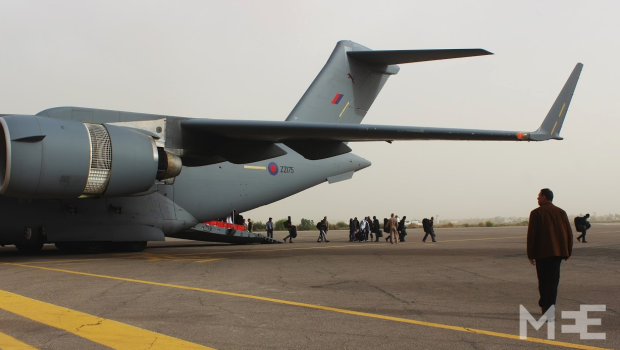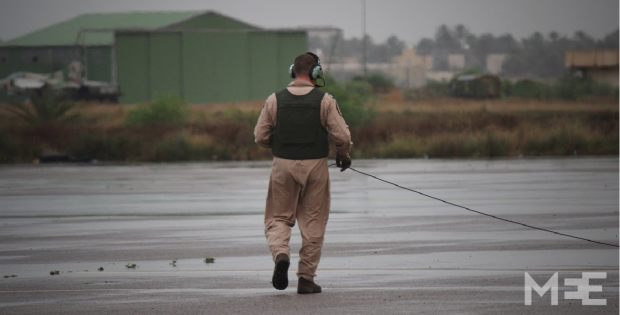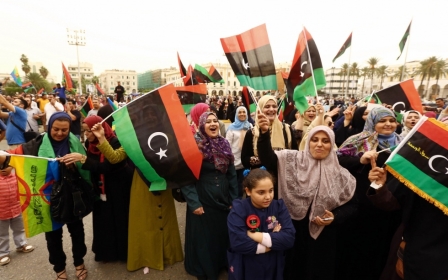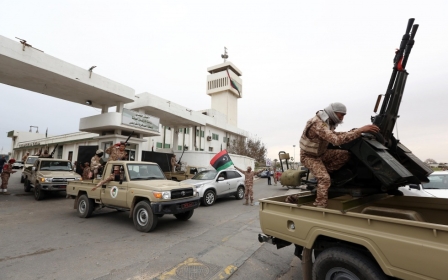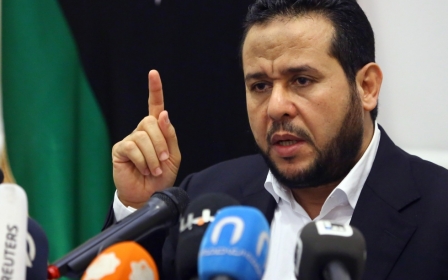Libya's shame as soldiers return from UK
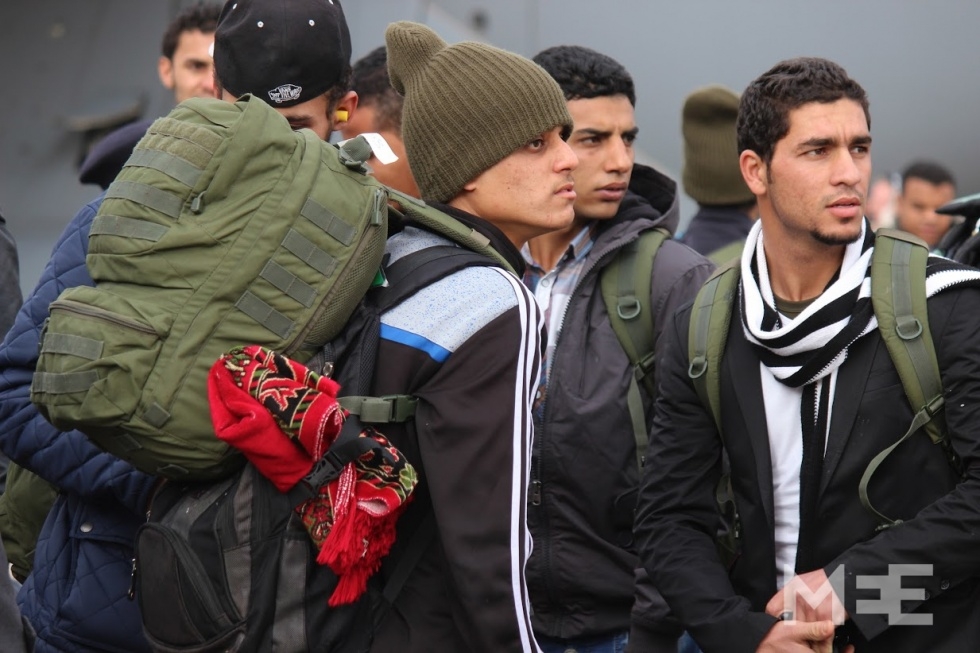
TRIPOLI - Its 4pm on a grey afternoon in Tripoli, and morale is low after what was designed to be a positive six-month training initiative in England for Libyan troops ended a month prematurely in shame and embarrassment.
The last batch of Libyan soldiers returned home on Friday after two of their colleagues admitted sexual assault charges and two others were charged with the rape of a young man in the UK. A further soldier has also been charged with three instances of sexual assault, although he has not yet entered a plea.
All the sexually-motivated attacks happened while the Libyan troops were receiving training with the British Army in Bassingbourn, a specially renovated World War II military base in Cambridgeshire, England.
Since the revolution that ousted dictator Muammar Gaddafi in 2011, Libya has been torn apart by armed militia groups who have turned Libya's main cities into their own battlefields as they struggle to gain power.
Mahmoud, who did not want to give his last name out of security concerns, is one of the soldiers who travelled to the UK earlier this year. He was also previously a member of a number of Libyan militias, some of whom have been reconstituted and recognised by the government.
Before traveling, he said: “I joined so many who claimed to be army; hopefully this group will be different."
The Libyan people's calls for a state army and police force are far from being answered, as most groups who claim to be members of the Libyan Army are loyal only to their tribe, to a political or religious ideology, or to the rebel commander who led them against Gaddafi.
The army that was left behind by Gaddafi was in a fragile state, and in 2013 it was agreed with then Libyan Prime Minister Ali Ziedan that the United Kingdom would train up to 2,000 Libyan soldiers to form a general purpose force as a start to building a more professional army.
The recruits were chosen by the Libyan Ministry of Defence with the assistance of a small British defence team, who assessed the young soldiers from all over Libya in a camp in Tajoura, southeast of the Libyan capital Tripoli.
Adel Akari, one of the Libyan Army officers in charge of the operation, said before the troops left that "a number of the men have never been out of their home towns, let alone Libya".
He went on to express his reservations about what the young men might get up to once they left the conservative community they had grown up in.
"Some from the remote towns have never seen a girl other than their mother," said Akari.
The plan went ahead despite concerns that some of those involved would take advantage of their stay in the UK to seek asylum. While getting on the plane to leave, one man shouted: "Goodbye Libya, forever."
It is now believed that between two to five of the cadets sought asylum, although British Prime Minister David Cameron has publically urged that all the claims be thrown out. But this seems to be the least of the UK’s worries.
According to Akari 18 of the 360 men are still in UK where they face a string of minor offences, although this has not been widely publicised in the British media.
Of the five wanted on sexual assault and rape charges, one man has been cleared and has returned home, Akari explained while adding that it was not clear when the 14 other soldiers would return home.
A Home Office spokesperson said that they do "not routinely comment on individual cases."
The news came as a shock to many, said Akari while waiting for the British plane carrying the returning soldiers to arrive on Friday. "Only animals would do what they did. They shamed us, and we are disgusted. If the men are returned to Libya they will return to hell."
Akari said other attempts to reinforce Libya's army in Italy and Turkey had also ended badly. "There were sexual harassment complaints on these two trips as well," he said.
There were high hopes the visit to the UK would end differently. "We put a lot of effort into ensuring this all goes to plan," said Akari, while expressing his disappointment with the British authorities, saying that he felt they had not done enough to stop such attacks.
"We [the Libyan government] had explained what happened in the last two trips [to Italy and Turkey] and I expressed concern, but it was not taken seriously by the British Army or government," Akari said.
When the plane landed in Tripoli, the soldiers were quickly hurried off onto buses that would take them home. A welcoming party was planned, but with everything that happened, few were in the mood. "We just want to get this over with" said Akari.
One soldier said: "The UK was nice but the training was weird. I prefer training in Libya."
A number of the men came to the defence of their fellow soldiers.
"We think it was framed," said a soldier from Sabhaa, in southern Libya who showed up to greet the returning men. "I mean, with all the girls why would they go for a guy?"
Much has happened in Libya since the soldiers left for the UK. The capital has lost its main airport, destroyed in a militia war for control of the city, and hundreds have lost their lives in the fighting which shows little sign of abating.
In July, after some of the worst fighting the capital, the winning Libya Dawn militias, set up its own government, out of the former General National Congress with the internationally recognised House of Representatives exiled to the eastern city of Tobruk.
This has left Libya with two parliaments fighting politically for power as their forces continue to clash in several key cities and towns as they wrangle for geographical control. Adding to the confusion, Libya's Supreme Court on Thursday declared the internationally recognised parliament "unconstitutional", raising doubts as to whom the newly trained force belongs to.
Libya is in dire need of an army to keep the peace, but while the fighting in Libya was raging, the soldiers in the UK were busy deciding which side they would join upon their return.
Some released videos of themselves chanting support for the Libya Dignity movement, led by rogue ex-general Khalifa Haftar, and rumours came out about riots that were happening within the camp they were training in.
Yet for some, this is yet another opportunity designed to get Libya back on track that has been missed.
Mahmoud told Middle East Eye that although some of the troops made mistakes, it was wrong to punish and blame all the men.
“We should have been allowed to finish the course” he said. “Many of us really just want to be the army Libya needs.”
For now, however, Mahmoud’s hopes of being a soldier for a united Libya will have be put on hold.
“Until things are clearer" [regarding who’s in charge of Libya] it will be difficult to do anything with the troops,” Akari said.
New MEE newsletter: Jerusalem Dispatch
Sign up to get the latest insights and analysis on Israel-Palestine, alongside Turkey Unpacked and other MEE newsletters
Middle East Eye delivers independent and unrivalled coverage and analysis of the Middle East, North Africa and beyond. To learn more about republishing this content and the associated fees, please fill out this form. More about MEE can be found here.


